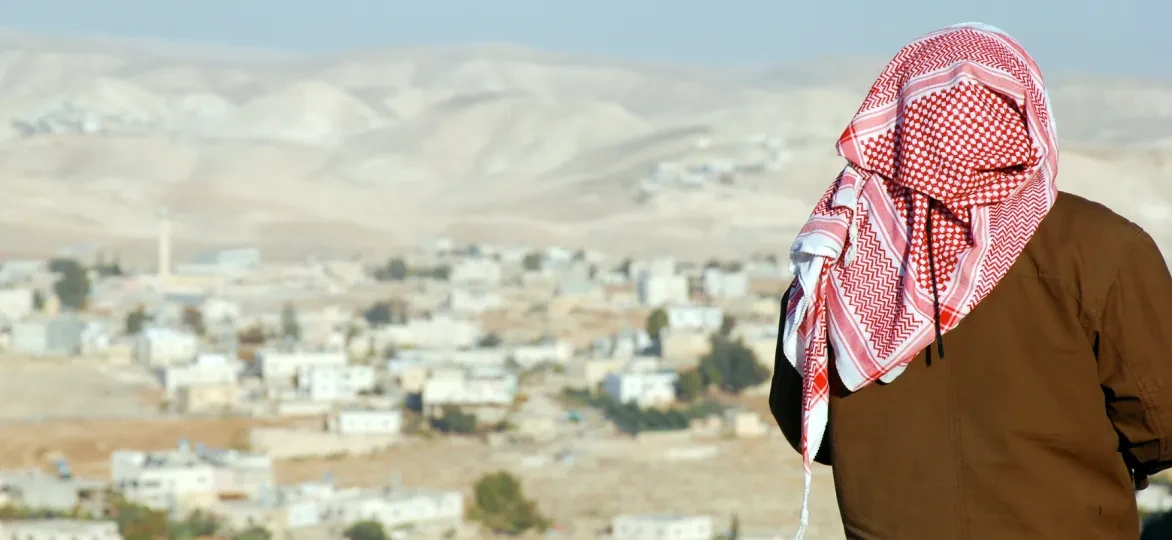Trading with illegal Israeli settlements: 5 questions and answers
16 September 2025
3 minutes
In early September 2025, the Belgian federal government announced its intention to implement an import ban on products from illegal Israeli settlements. More than 80 Belgian and European organizations are now calling in a new report for a ban not only on products, but also on services and investments. The organizations, including 11.11.11 and Oxfam, are also examining several European companies.
Should we now boycott them en masse? And is the government's proposal sufficient? We posed five questions to our Middle East expert, Willem Staes.
What has the Federal Government decided and what does that mean in practice?
The federal government announced in early September 2025 an import ban on products from illegal Israeli settlements. In practice, this involves banning goods that come directly from the settlements, such as dates, avocados, citrus fruits and wines.
Is an import ban on products enough according to 11.11.11?
The announced import ban on settlement products is a small step in the right direction But above all, too little, too late. The federal government must go much further.
Countries have a legal obligation to stop all trade and investments that contribute to the illegal occupation of Palestine. This means not only products (such as dates or avocados), but also services (such as tourism) and investments (money that companies invest in, for example, settlement expansions or banks that invest in weapons). The International Court of Justice explicitly reaffirmed this legal obligation to all countries in July 2024.
In the Palestine agreement of September this year, the government explicitly referred to this ruling of the International Court of Justice. Yet our country states half measures for those who remain well below the minimumBelgium must respect its obligations under international law and therefore prohibit all trade, including services, and investments that contribute to maintaining the occupation.
Which companies are we talking about? Should we boycott them completely, like Carrefour?
The report focuses on a range of European companies involved in settlements through products, services or investments: including Carrefour, TUI, Siemens, Barclays, Maersk, JCB, eDreams/OpodoThis does not involve a complete boycott of these companies, but rather a halt to their specific activities in or with settlements.
This means Carrefour is being held accountable for stores in settlements, not for their entire operations. So no, Carrefour will not be shut down. As an individual consumer, you can, of course, continue to operate.
Isn't an import and investment ban something the EU should regulate?
Yes, trade is in principle an EU competenceTo achieve maximum impact, a ban on trade and investment must also be implemented at the European level. But Belgium cannot and should not wait for the EU.
Member states are, after all, allowed to take their own measures based on "public morality," which is permitted under European and international law. For example, Ireland, Slovenia, and the Netherlands are already taking steps in this direction. Belgium can now impose a ban on trade, services and investments that contribute to the occupation, even if the EU has not yet adopted a similar initiative.
What is the difference between an import ban and the EU-Israel Association Agreement?
Israel has an association agreement with the EU, which means Israeli products at favorable trade rates can be exported to Europe.
In theory are products from settlements excluded from those benefitsBut in practice, labels and postal codes are often manipulated, allowing settlement products to still be labeled "Made in Israel" and thus benefit from those preferential rates.
A suspension of the association agreement would mean that all Israeli products would lose their favorable tariffs. But trade itself would continue, just more expensive. A import ban The regulation on settlement products goes further: these products may no longer appear on the European market at all, with or without favourable rates.
In shortSuspending the Association Agreement would penalize Israel more broadly economically, but would not halt trade with settlements. An import ban would.

Willem Staes
Middle East Coordinator


